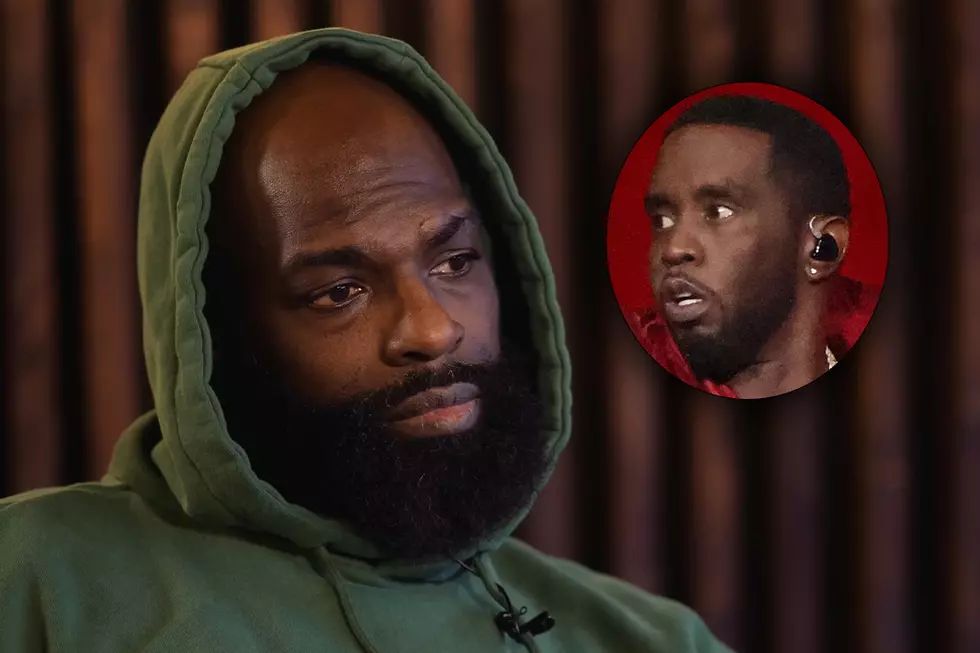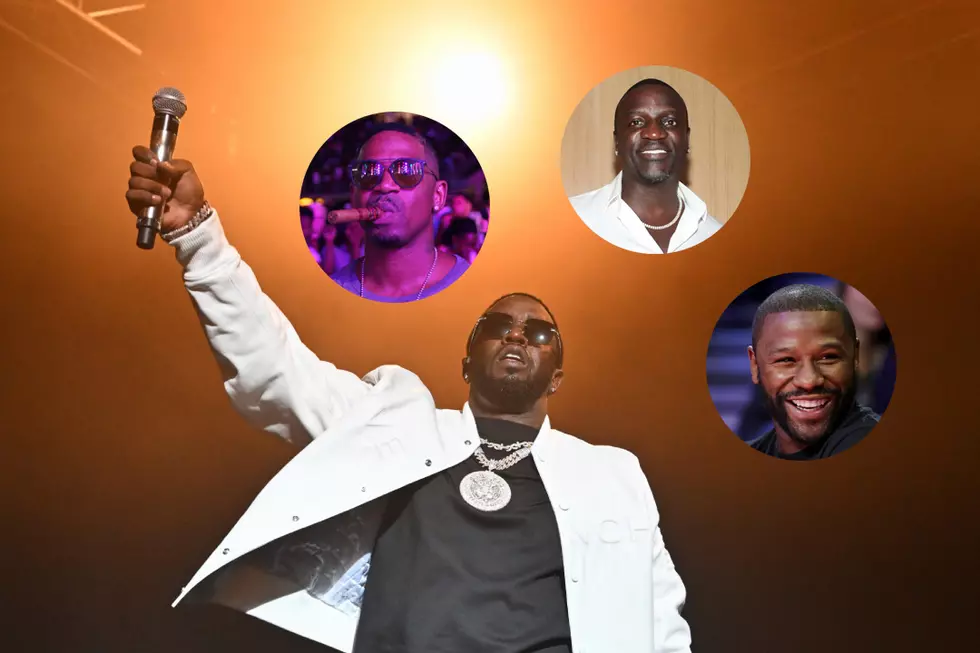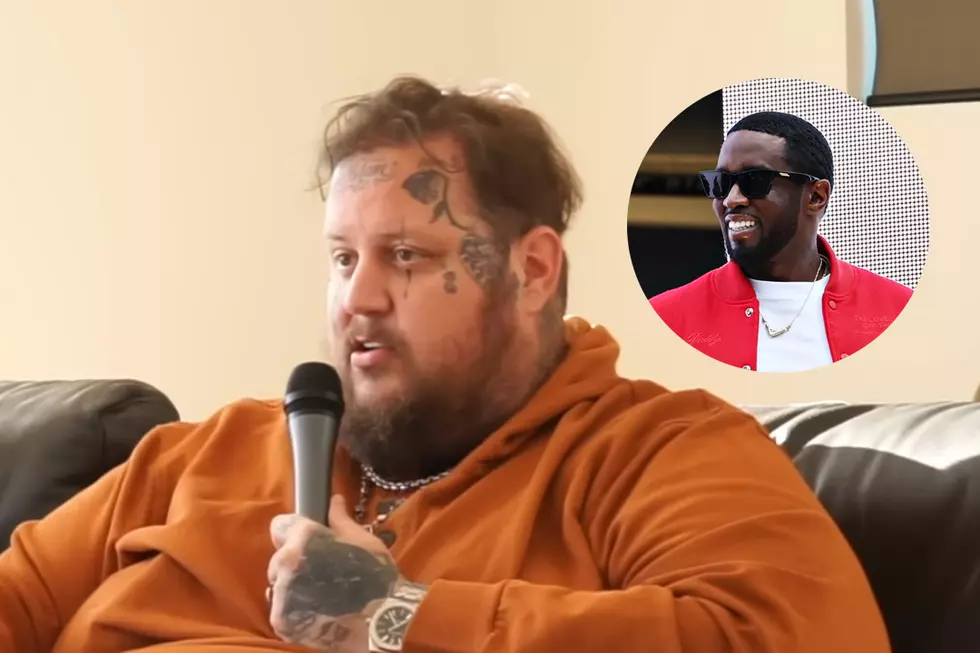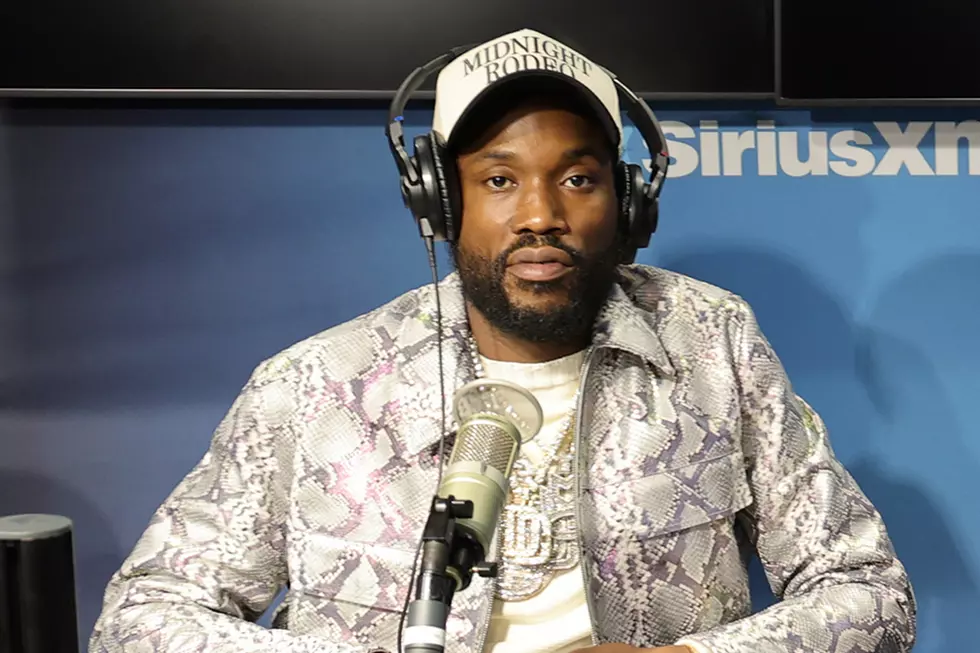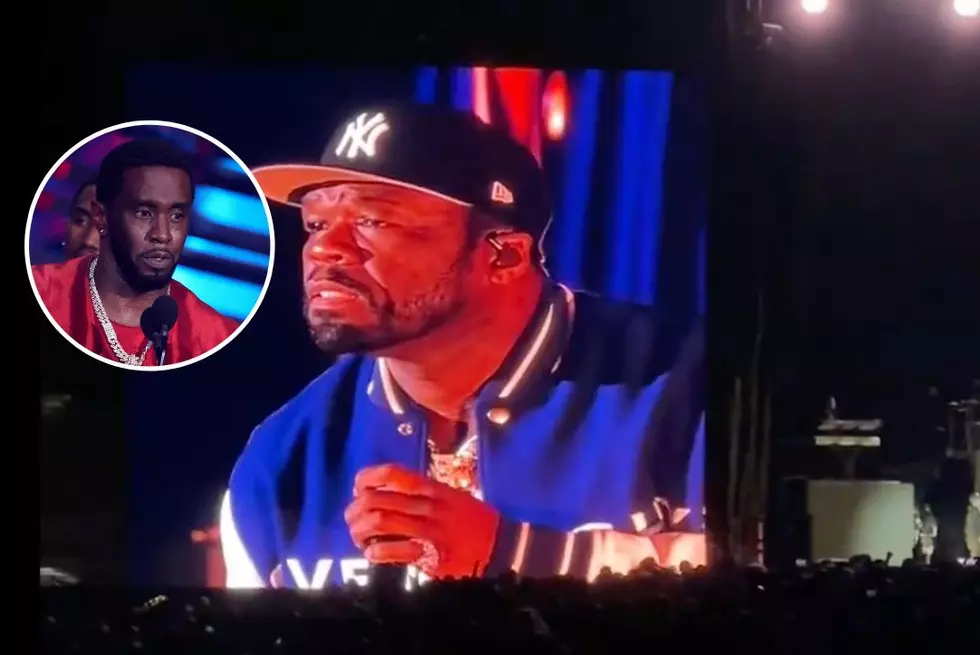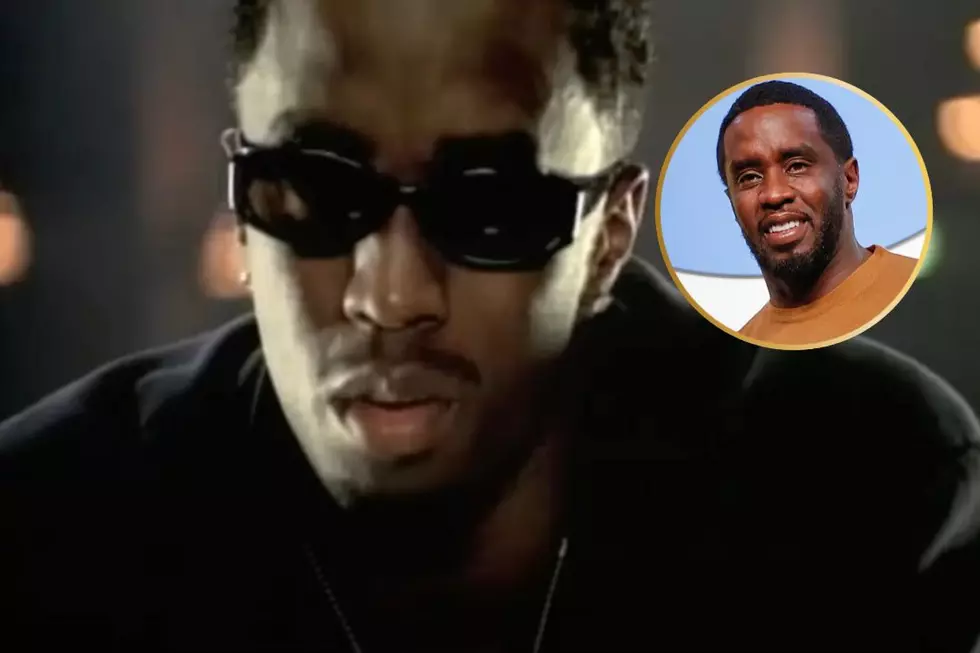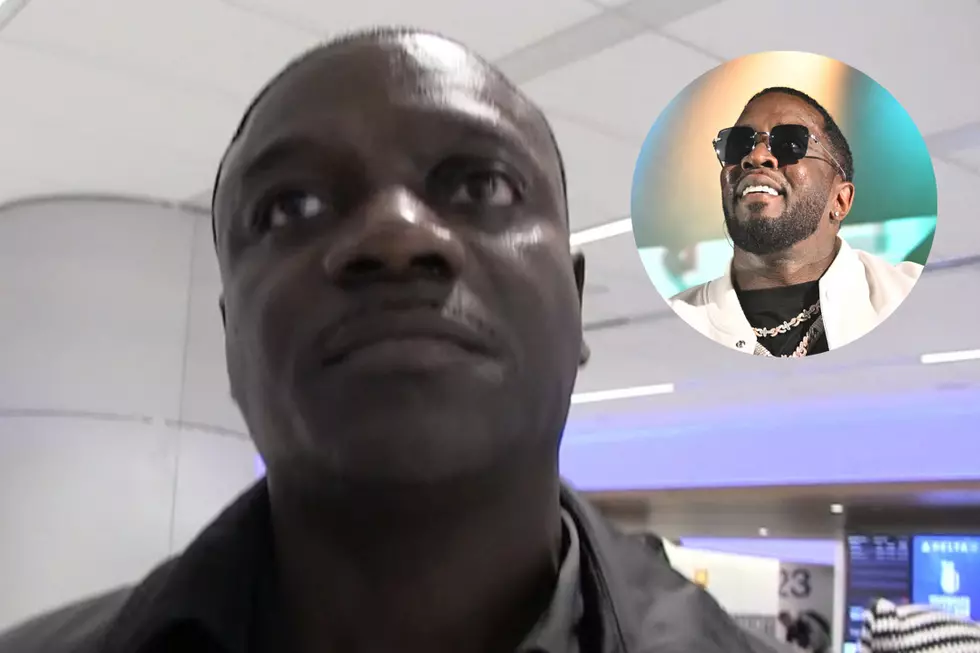![G-Dep: The Vent [Excerpt From the June 2011 Issue]](http://townsquare.media/site/812/files/2011/06/GDep_1.jpg?w=980&q=75)
G-Dep: The Vent [Excerpt From the June 2011 Issue]
On a cold night last December, Trevell Coleman walked into the New York Police Department’s 25th Precinct, in Harlem, on his own volition and made a startling admission. “I shot and killed someone 17 years ago,” he told a cop in the station, as reported by the New York Post. A botched robbery attempt, .40-caliber handgun, back in 1993.
It would be a story for the papers in any case, but this one was made even more noteworthy by the fact that Coleman has a voice that used to boom out of radios all over the city and a face you might recognize from seeing it on MTV. He is better known as the former Bad Boy Entertainment rapper G.Dep, whose Child of the Ghetto debut album spawned the 2001 hits “Special Delivery” and “Let’s Get It”; the video for the latter helped popularize the Harlem Shake dance.
The confession solved a case that police had left cold for years. Coleman was booked as a pretrial inmate charged with second-degree felony murder and manslaughter—crimes for which there is no statute of limitations. The very next day, though, he backtracked, saying that he didn’t know that John Henkel—the 32-year-old Queens man he shot three times that night on Park Avenue and East 114th Street, near the James Weldon Johnson projects—had died. Henkel’s stepbrother told the Post that he wished Coleman had not come forward, because it has brought back memories of the tragedy for his family.
Now 36, locked up at Rikers Island, Coleman is facing up to life in prison if he’s found guilty. His attorney, Anthony L. Ricco, has said the confession was part of a 12-step program Coleman was undergoing to battle drug addiction. After his rap career fizzled out, he fell into using PCP, or angel dust, heavily and continued after his grandmother who raised him passed away. Numerous stints in rehab couldn’t help him kick the habit, and he wound up abusing the hallucinogen for 10 years. During that time, he amassed a rap sheet of more than 25 arrests—everything from drugs to burglary and grand larceny.
Murder is a different beast, though. Ricco entered a not-guilty plea earlier this year, and although he says a sentence is inevitable for his client, he hopes to lessen Coleman’s time.
XXL visited Coleman at the jail’s George Motchan Detention Center Ceremonial Hall on April 27. Bald-headed, with a stubbly beard, he wore slate-gray Velcro coveralls and black British Knights sneakers as he talked about things like how, in turning himself in, he had to walk away from his wife of six years, seven-year-old twin boys and his 12-year-old daughter from a previous relationship. “I didn’t think about them at the exact moment when I went in,” he said. “Now I think about them, and that’s really what I miss the most. But I knew it was something that I had to do, regardless.” — Mark Lelinwalla
How are you holding up?
G-Dep: I’m good, maintaining, and trying to keep in good spirits. I’m meditating when I can and trying to have some alone time, with the time that they’re giving me.
You were 18 at the time of the shooting. What do you remember about the attempted robbery?
I was just a kid in the street. I had a considerable amount of family.
I wasn’t too destitute at the time. I was just into the street life, so a lot of the things I was doing was just going with the territory.
Take us through December 15, when you walked into the station and confessed.
It was an ongoing thing. It wasn’t one of those things where I said, Okay, I’m going to just do it. I was thinking about it for a while. That day, I did an interview for this public-access show. Right after that, I decided to just go ahead to the precinct.
I remember, in the precinct, when everything transpired, [the police officer] gave me a phone to call my daughter’s mother. I was like, “Yeah, I’m going to have to go down for this, go through the system and all of that.” So that was the first taste of just realizing that it’s a wrap.
How did you make the decision about when to do it? How did you know it was the right time?
I felt like I was going to go through the same thing again—being happy, enjoying food and family—and I still didn’t handle what I thought I needed to. The reason why I probably did that at that time is I wanted...I couldn’t really continue to move on. I couldn’t move on and keep trying to satisfy myself if I didn’t deal with that.
But why confess after 17 years?
I didn’t feel like I could keep going on, living my life—indulging in life and feeling the highs and lows and just basking in what I thought was a good life—knowing what I did affected someone else’s life. It was the fact that I had children that I thought about stuff like that. I didn’t feel it was fair. I just wanted to take care of that, and have some resolve for the situation. I didn’t know what was going to be the outcome, but that was the only way I knew to deal with it.
FOR MORE ON G-DEP, GO TO PAGE 2
You have three kids. How did that weigh on your decision to confess?
I felt like I was being a negative influence anyway, with the mind-state I was in. So the children weren’t really, like, a factor, as far as on my behalf. I felt like it was something I had to do. It could only help them in the long run.
How tough is it to walk away from your wife after her weekly visits?
I think they made it so you don’t get to watch them leave; you leave them first. So it kind of helps, in a way. But you’re always walking away from family. You realize what you’re dealing with. You equate with what’s going on with your life, what’s going to happen, and you go from there. That’s kind of just the reality check. It is what it is.
What does her loyalty mean to you?
She tries her best to do whatever she can. She has children that she needs to take care of. At times, I expect her to do certain things. But then I realize I shouldn’t expect anything. It’s really whatever she could and wants to do.
You’ve been open in past interviews about your substance abuse and problems with drugs. How bad did it get?
I remember, one day specifically, I was in the house and just looked at my surroundings and everything, and it just felt like I was a whole other person. I think that was probably the worst I got, just letting it all go.
Do you ever think about why you started using?
I think I really didn’t pay attention to the profession I was in. I kind of always was trying to medicate myself, trying to feel nothing. I knew I had a job to do, and once
I did it, I was like, Okay. Other than that, in my free time, that’s what I did in my spare time: I just medicated and got high. When I probably should have been maybe exercising right. I wasn’t even trying to prepare for the future and doing things that can build. I wasn’t building. I was just living in the game. As long as I had my job, that’s how I was living.
Were you clean at the time of the shooting?
At that time, all I did was smoke weed. Nothing else.
How about in 2001, when your album came out, Child of the Ghetto? Were you clean at the time?
Yeah, somewhat. I was just doing the music. Dealing with what I was dealing with,
I knew I was on a highly publicized label, so all I did was do what I had to do: go to the studio when I had to, do the shows. We weren’t really around a lot. We had to go to the studio, do shows, take flights. A lot of traveling. It was an experience.
How did that affect you, when the album came out?
I remember saying, “I got an album coming out,” and a lot of people didn’t know.
I was in the streets. People knew, but it wasn’t like it was different. Until the video comes out, it’s a whole other ball game. It goes to another level when people recognize you, like, “Yo, I seen the video.” People you don’t even know.
Diddy spoke praises for you during a Sirius interview. Your thoughts?
I appreciate him reaching out and showing support. I haven’t spoke to him in a minute, and he reached out to my family. He spoke to my wife and was showing support. That’s what’s up.
When you went to the precinct in December and admitted to the shooting, you were surprised to find out the man you shot had died?
Yeah, that was probably the most surprising thing about that day, and the whole situation. That was a real shock. I knew I was going to have to do some time or it was going to be reinvestigated or something like that, but when the detective came back in and said the guy died, it just kind of changed everything. I told him that I wanted to get some closure for the guy’s family and hopefully that would help. They told me, “Well, I just wanted to tell you that the guy died.” I was like, “Wow.”
**FOR THE FULL STORY, PICK UP THE JUNE 2011 ISSUE OF XXL, ON STANDS NOW**
More From XXL
